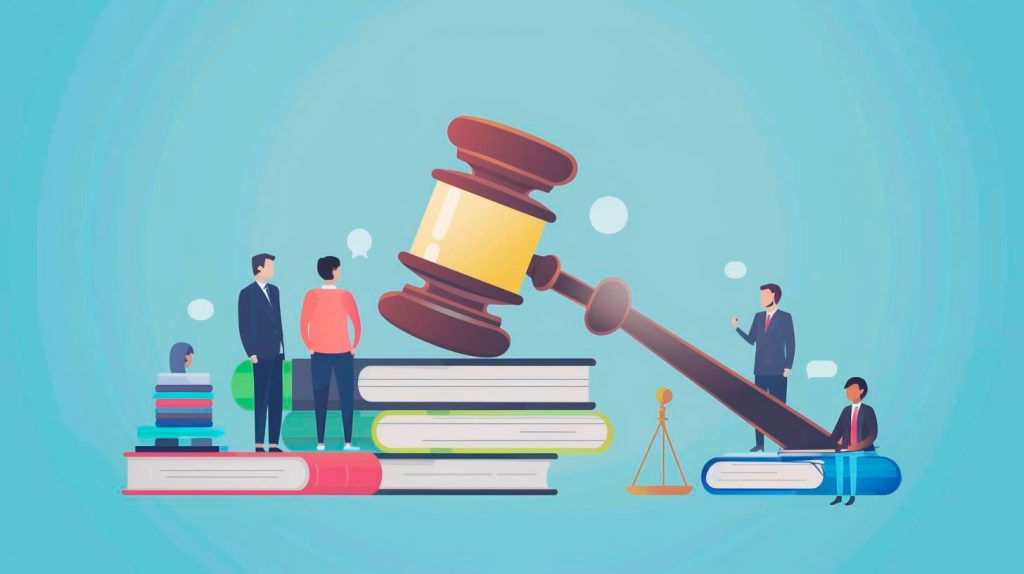
Strategies for Improving Your Credit Score After a Bankruptcy Discharge
Understand Your Credit Report
Before you can start improving your credit score, it’s important to understand where you currently stand. Obtain a copy of your credit report from the three major credit bureaus – Equifax, Experian, and TransUnion. Review the report for any errors or inaccuracies and address them with the credit bureaus. This will ensure that the information being used to calculate your credit score is correct.
Make Timely Payments
One of the most important factors in determining your credit score is your payment history. To improve your credit score, it’s crucial to make all of your payments on time. Setting up automatic payments or reminders can help ensure that you never miss a due date. Making timely payments shows lenders that you are responsible and can be trusted to repay your debts.
Keep Your Credit Utilization Low
Your credit utilization ratio is another key factor in determining your credit score. This ratio measures the amount of credit you are using compared to the total amount of credit available to you. To improve your credit score, it’s recommended to keep your credit utilization below 30%. This demonstrates to lenders that you are not reliant on credit and can manage your finances effectively.
Diversify Your Credit Mix
Having a diverse mix of credit accounts can also help improve your credit score. This includes a combination of revolving credit (such as credit cards) and installment credit (such as auto loans or mortgages). Having a mix of credit types shows lenders that you can manage different types of credit responsibly.
Monitor Your Credit Score Regularly
Monitoring your credit score regularly can help you track your progress and identify areas for improvement. There are several free credit monitoring services available that allow you to check your credit score frequently. By staying informed about your credit score, you can take proactive steps to improve it and reach your financial goals.
Seek Professional Help
If you are struggling to improve your credit score on your own, consider seeking help from a professional. A credit counselor or financial advisor can provide personalized guidance and assistance tailored to your specific financial situation. They can help you develop a plan to improve your credit score and achieve your financial goals after a bankruptcy discharge.
Rebuilding your credit after a bankruptcy discharge may seem like a daunting task, but it is possible with the right strategies in place. By understanding your credit report, making timely payments, keeping your credit utilization low, diversifying your credit mix, monitoring your credit score regularly, and seeking professional help if needed, you can improve your credit score and work towards a brighter financial future.
According to a study conducted by the National Foundation for Credit Counseling, individuals who actively work on improving their credit score after bankruptcy are more likely to see positive results within a few years. By implementing these strategies and staying committed to your financial goals, you can rebuild your credit and establish a strong financial foundation for the future.
- Understanding your credit report is the first step towards improving your credit score.
- Making timely payments is crucial for demonstrating financial responsibility to lenders.
- Keeping your credit utilization low shows lenders that you are not reliant on credit.
- Diversifying your credit mix can help improve your credit score.
- Monitoring your credit score regularly allows you to track your progress and make necessary adjustments.
- Seeking professional help from a credit counselor or financial advisor can provide valuable guidance and support.
By following these strategies and taking proactive steps to improve your credit score, you can rebuild your credit and achieve your financial goals. Remember that rebuilding your credit takes time and patience, but with dedication and perseverance, you can improve your credit score and pave the way for a brighter financial future.
Working with Creditors and Lenders to Rebuild Your Financial Health
Understanding Your Options
When facing financial challenges, it’s essential to understand your options when working with creditors and lenders. One common strategy is debt negotiation, where you work with creditors to come up with a payment plan that fits your budget. Debt consolidation is another option, where you combine multiple debts into one manageable monthly payment. Bankruptcy is a last resort option for those facing overwhelming debt and financial hardship.
The Benefits of Working with Creditors
Working with creditors can have several benefits for individuals struggling with debt. By negotiating with creditors, you may be able to reduce the total amount owed or lower your interest rates. This can make it easier to pay off your debts and improve your credit score over time. Additionally, creditors may be willing to work with you to create a payment plan that fits your financial situation.
Rebuilding Your Financial Health
Rebuilding your financial health takes time and dedication. By working with creditors and lenders, you can take proactive steps towards managing your debt and improving your financial situation. Making consistent payments on time and communicating with your creditors can help you rebuild your credit score and overall financial health.
Industry Statistics
- According to the Federal Reserve, total household debt in the United States reached $14.64 trillion in the first quarter of 2021.
- A survey by the National Foundation for Credit Counseling found that 73% of Americans had outstanding debts when surveyed.
- The American Bankruptcy Institute reported that there were 752,160 bankruptcy filings in 2020, a 29% decrease from the previous year.
Working with creditors and lenders is a crucial step in rebuilding your financial health. By understanding your options and taking proactive steps to manage your debt, you can improve your credit score and overall financial situation. Remember, you are not alone in facing financial challenges, and there are resources available to help you on your journey to financial recovery.
For more personalized assistance with managing debt and working with creditors, contact our team of experienced lawyers today. We are here to help you navigate the complexities of debt negotiation, debt consolidation, and bankruptcy to rebuild your financial health and secure a brighter financial future.













Is it possible to get approved for a mortgage after a bankruptcy discharge?
How long does it usually take to see improvements in your credit score after a bankruptcy discharge?
Has anyone had luck with credit repair companies? Are they worth the money?
Yeah, it’s a tough road but definitely doable. I recommend getting a secured credit card and making on-time payments every month!
What are some common mistakes people make when trying to rebuild their credit after bankruptcy?
Yes, it is possible to get approved for a mortgage after a bankruptcy discharge. However, you may need to wait a few years and show responsible credit behavior in the meantime.
Yo, I heard rebuilding your credit after bankruptcy is no joke. Anyone got tips on how to do it?
Be careful with credit repair companies, some are scams. It’s best to do your own research and take control of your own credit rebuilding process.
One common mistake is applying for too many credit cards at once. It’s important to take it slow and steady to avoid hurting your credit score further.
It can vary for each individual, but typically it takes about 12-24 months to start seeing significant improvements in your credit score post-bankruptcy.
Don’t forget to check your credit report regularly for any errors that may be dragging down your score. It’s important to stay on top of that!